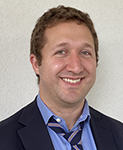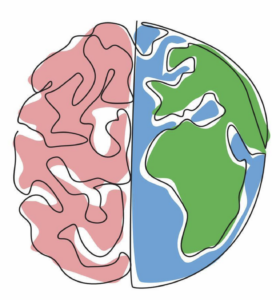Click to open
Neuro 80 (formerly MCB 80) fulfills the required introductory neuroscience course requirement.
Any one of the following courses fulfills the Neuroscience ‘Foundational’ course requirement for the ‘Neurobiology’ and ‘MBB’ tracks (‘Computational Neuroscience students must take Neuro 120). Additional courses from this category can be used to fulfill the ‘Advanced Neuroscience Elective’ courses requirement.
Neuro 57: Animal Behavior – Dr. Pierce & Dr. Olveczky, Q Report
Neuro 105: Systems Neuroscience – Dr. Engert, Q Report
These courses are recommended for juniors and capped at 12 students. They provide an opportunity to learn from a professional neuroscientist in a small group setting, to explore important research topics that are not covered in depth in other courses, and to become comfortable reading primary scientific literature and analyzing scientific data. Neuroscience concentrators and secondary students may only count one tutorial towards those requirements.
Note: The list of tutorials for the entire academic year 2025-26 has now been updated. All courses are centrally lotteried by the Neuroscience concentration (see below).
You can and should shop multiple tutorials. To enroll in a tutorial:

Neuro 101V: Sculpting Activity: How Inhibition Shapes the Brain in Health and Disease – Dr. Saad Hannan, Q report

Neuro 101W: Auditory Cognitive Neuroscience – Dr. Sara Beach, Q report

[Neuro 101CC: Comparative neuroscience and brain circuits across species] – Dr. Anqi Zhang – not offered 2026-’27

Neuro 101DD: Dopamine: A systems neuroscience perspective (New Course) – Drs. Mark Burrell and Malcolm Campbell

Neuro 101EE: Neuroscience of Psychedelic Experiences (New Course) – Dr. Chloe Jordan

[Neuro 101FF: Building a Human Brain: Cortical Development from Cells to Circuits] – Dr. Rahel Kastli – not offered 2026-’27

[Neuro 101GG: The Neuroscience of Artificial Neural Networks: From Inspiration to Analysis] – Dr. Andy Keller – not offered 2026-’27

Neuro 101L: Sleep Talk: Unraveling the Mystery of Sleep – Dr. Tony Cunningham, Q report

Neuro 101AA: Alzheimer’s Disease: causes and consequences of brain degeneration – Dr. Ted Zwang, Q report

Neuro 101HH: Worth the effort? Mechanisms of motivated decision making (New Course) – Dr. Guillaume Pagnier

Neuro 101JJ: Timing the Brain: Circadian Clocks and Their Role in Neural Function and Behavior (New Course) – Dr. Cristina DeOliveira

Neuro 101MM: Memory Models: The many levels of learning in the brain (New Course) – Dr. Maddie Snyder

Neuro 101NN: Math Meets Mind: Applied Mathematics in Neuropsychiatry (New Course) – Dr. Walid Yassine

Neuro 101PP: The Fragile Brain: How Environmental Factors Impact Neurodevelopment (New course) – Dr. Dan Snellings and Ben Finander

Neuro 101V: Sculpting Activity: How Inhibition Shapes the Brain in Health and Disease – Dr. Saad Hannan, Q report

Neuro 101L: Sleep Talk: Unraveling the Mystery of Sleep – Dr. Tony Cunningham, Q report

Neuro 101W: Auditory Cognitive Neuroscience – Dr. Sara Beach, Q report

Neuro 101AA: Alzheimer’s Disease: causes and consequences of brain degeneration – Dr. Ted Zwang, Q report

[Neuro 101CC: Comparative neuroscience and brain circuits across species] – Dr. Anqi Zhang – not offered 2026-’27

Neuro 101HH: Worth the effort? Mechanisms of motivated decision making (New Course) – Dr. Guillaume Pagnier

Neuro 101DD: Dopamine: A systems neuroscience perspective (New Course) – Drs. Mark Burrell and Malcolm Campbell

Neuro 101JJ: Timing the Brain: Circadian Clocks and Their Role in Neural Function and Behavior (New Course) – Dr. Cristina DeOliveira

Neuro 101EE: Neuroscience of Psychedelic Experiences (New Course) – Dr. Chloe Jordan

Neuro 101MM: Memory Models: The many levels of learning in the brain (New Course) – Dr. Maddie Snyder

[Neuro 101FF: Building a Human Brain: Cortical Development from Cells to Circuits] – Dr. Rahel Kastli – not offered 2026-’27

Neuro 101NN: Math Meets Mind: Applied Mathematics in Neuropsychiatry (New Course) – Dr. Walid Yassine

[Neuro 101GG: The Neuroscience of Artificial Neural Networks: From Inspiration to Analysis] – Dr. Andy Keller – not offered 2026-’27

Neuro 101PP: The Fragile Brain: How Environmental Factors Impact Neurodevelopment (New course) – Dr. Dan Snellings and Ben Finander
Biomedical Engineering 131: Neuroengineering – Dr. Liu, Q report
Neuro 115: Cellular Basis of Neuronal Function – Dr. Draft Q Report
[Neuro 129: The Brain: Development, Plasticity, and Disease] – not offered 2025-’26 – Dr. Kunes, Q Report
Neuro 141: The Physics of Sensory Systems in Biology – Dr. Samuel, Q Report
[Neuro 145: Neurobiology of Perception and Decision Making] – not offered 2025-’26 – Dr. Uchida, Q Report
Neuro 146: Experience-based Brain Development – Dr. Hensch, Q Report
Neuro 175: Principles of Cell Physiology – Dr. Bellono, Q report
[Neuro 180: Development, Plasticity, and Regeneration in the Mammalian Brain] – Dr. Macklis, Q Report – not offered 2025-’26
Psychology 1201: Your Brain on Drugs: Psychopharmacology – Dr. Lukas, Q Report
[Psychology 1309: Essentials of fMRI for Cognitive Neuroscientists] – Dr. Konkle, Q report – not offered 2025-’26
[Psychology 1451:Debugging the brain: Computational Approaches to Mental Dysfunction]– not offered 2025-’26 – Dr. Gershman, Q Report
Biomedical Engineering 129: Introduction to Bioelectronics – Dr. Liu, Q report
[Biomedical Engineering 130: Neural Control of Movement] – Dr. Smith, Q Report – not offered 2024-’25
Neuro 105: Systems Neuroscience – Dr. Engert, Q Report
Neuro 120: Introductory Computational Neuroscience – Dr. Penikis, Q report
Neuro 125: Molecular Basis of Behavior – Dr. Dulac, Q Report
[Neuro 1202: Modern Neuroanatomy – this course examine the circuits that underly cognition] – Dr. Buckner, Q Report– not offered in 2025-26
Psychology 1325: The Emotional, Social Brain – Dr. Phelps, Q report
Neuro 1401: Computational Cognitive Neuroscience – Dr. Gershman, Q Report
Psych 1406: Biological and Artificial Visual Systems – Dr. Alvarez, Q report
Biomedical Engineering 131: Neuroengineering – Dr. Liu, Q report
Biomedical Engineering 129: Introduction to Bioelectronics – Dr. Liu, Q report
Neuro 115: Cellular Basis of Neuronal Function – Dr. Draft Q Report
[Biomedical Engineering 130: Neural Control of Movement] – Dr. Smith, Q Report – not offered 2024-’25
Neuro 175: Principles of Cell Physiology – Dr. Bellono, Q report
[Neuro 1202: Modern Neuroanatomy – this course examine the circuits that underly cognition] – Dr. Buckner, Q Report– not offered in 2025-26
[Neuro 180: Development, Plasticity, and Regeneration in the Mammalian Brain] – Dr. Macklis, Q Report – not offered 2025-’26
Psychology 1325: The Emotional, Social Brain – Dr. Phelps, Q report
Neuro 1401: Computational Cognitive Neuroscience – Dr. Gershman, Q Report
Psychology 1201: Your Brain on Drugs: Psychopharmacology – Dr. Lukas, Q Report
Psych 1406: Biological and Artificial Visual Systems – Dr. Alvarez, Q report
[Psychology 1309: Essentials of fMRI for Cognitive Neuroscientists] – Dr. Konkle, Q report – not offered 2025-’26
[Psychology 1451:Debugging the brain: Computational Approaches to Mental Dysfunction]– not offered 2025-’26 – Dr. Gershman, Q Report
† Courses taught at Harvard Medical School (HMS, Longwood Campus)
Engineering Sciences 223: Neurophysiology and Neural Interfaces – Dr. Srinivasan, Q Report
Neuro 231(formerly Neuro 131): Computational Neuroscience – Dr. Sompolinsky, Q Report
Neurobiology 209†: Neurobiology of Disease – Dr. Mireau, Q Report
This course covers a major disease or disorder of the nervous system each week, including Alzheimer’s, Huntington’s and Parkinson’s Diseases, Mood and Autism Spectrum disorder and others. The course is taught at the Harvard Medical School on Monday (6-8:30 PM) and Wednesday (7-9:30 PM) evenings. The Monday sessions involve patient presentations and “core” lectures describing clinical progression, pathology, and basic science underlying a major disease or disorder. On Wednesdays, students present material from original literature sources, and there is general discussion. The course is for advanced undergraduates, graduate students, and MD and MD/PhD students. The recommended prerequisite are: Introductory neurobiology, biochemistry, and genetics/molecular biology. The course is given in alternate years and is listed at the Medical School as NB 713.0.
Engineering Sciences 223: Neurophysiology and Neural Interfaces – Dr. Srinivasan, Q Report
Neuro 231(formerly Neuro 131): Computational Neuroscience – Dr. Sompolinsky, Q Report
Neurobiology 209†: Neurobiology of Disease – Dr. Mireau, Q Report
This course covers a major disease or disorder of the nervous system each week, including Alzheimer’s, Huntington’s and Parkinson’s Diseases, Mood and Autism Spectrum disorder and others. The course is taught at the Harvard Medical School on Monday (6-8:30 PM) and Wednesday (7-9:30 PM) evenings. The Monday sessions involve patient presentations and “core” lectures describing clinical progression, pathology, and basic science underlying a major disease or disorder. On Wednesdays, students present material from original literature sources, and there is general discussion. The course is for advanced undergraduates, graduate students, and MD and MD/PhD students. The recommended prerequisite are: Introductory neurobiology, biochemistry, and genetics/molecular biology. The course is given in alternate years and is listed at the Medical School as NB 713.0.
 |
Our students can receive course credit studying abroad during term time and in the summer all over the world.
Please talk to Ryan, Kristina, or Laura to get started planning. To discover specific programs, visit the Office of International Education. |
Note: outside of courses, many students create their own neuroscience research experience abroad in summer through grants from Harvard (including non-credit internships, like the Weissman Fellowship or RIKEN Japan Science Program). Check out more via the Summer Opportunities Office!
Note: all MBB 980 courses in the catalog count for the MBB seminar requirement.
[MBB 980R: Psychopaths and Psychopathy: Psychological, Neuroscientific, Legal, and Policy Issues] – Dr. Fersch, Q report – not offered 2025-26
MBB 980V: Advances in Understanding the Wiring of the Brain: Neuroimaging and Big Data in Connectomics – Dr. Nickerson, Q report
[MBB 980CC: The Microbiota-Gut-Brain Axis: How Gut Microbes Modulate Human Cognition and Mental Health] – Dr. Oyarzun, Q report – not offered 2025-’26
MBB 980FF: The Cortisol Chronicles: A Deep Dive into the Science of Stress (New Course) – Dr. Nelson
MBB 980W: Creativity at the Edge: Health, Music and Community (newly revamped) – Dr. Wong
MBB 980X: Brain and Behavior in Extreme Environments: Space Exploration, Sports, and Clinical Applications – Drs. Strangman and Ivkovic, Q report
[MBB 980Z: The Insanity Defense: Psychological, Neuroscientific, Legal, Philosophical, and Policy Issues] – Dr. Fersch, Q report – not offered in 2025-26
MBB 980HH: From Brains to Large Language Models (LLMs): Language, Thought, and Consciousness (New Course) – Dr. Dymek
MBB 980W: Creativity at the Edge: Health, Music and Community (newly revamped) – Dr. Wong
MBB 980FF: The Cortisol Chronicles: A Deep Dive into the Science of Stress (New Course) – Dr. Nelson
MBB 980HH: From Brains to Large Language Models (LLMs): Language, Thought, and Consciousness (New Course) – Dr. Dymek
The following list of classes count as modeling/analysis electives for students on the Computational Neuroscience Track. Additional courses may be petitioned for approval.
APMTH 50: Intro to Applied Mathematics, Q report
APMTH 104: Complex Analysis and Series Expansions, Q report
APMTH 105: Ordinary and Partial Differential Equations, Q report
APMTH 107: Graph Theory and Combinatorics, Q report
APMTH 108: Nonlinear Dynamical Systems, Q report
APMTH 111 : Intro Scientific Computing, Q report
APMTH 120: Applied Linear Algebra and Big Data, Q report
APMTH 158 : Introduction to Optimal Control and Reinforcement Learning, Q report
APMTH: 220: Geometric Methods Machine Learning, Q report
APMTH 231: Decision Theory, Q report
APMTH 232 : Learning, Estimation, and Control of Dynamical Systems, Q report
BE 110: Physiological Systems Analysis, Q report
CS 20: Discrete Mathematics, Q report
CS 1090: Intro to Data Science, Q report
CS 1210: Intro to Theoretical Computer Science, Q report
CS 1240: Data Structures and Algorithms, Q report
CS 1430: Computer Networks, Q report
CS 1810: Machine Learning, Q report
CS 1820: Planning and Learning Methods in AI, Q report
CS 1870: Computational Linguistics] Q report
ENG-SCI/APMTH 115: Mathematical Modeling, Q report
ENG-SCI/APMTH 121: Intro to Optimization, Q report
ENG-SCI 155: Systems and Control, Q report
ENG-SCI 156: Signals and Communications, Q report
ENG-SCI 157: Biological Signal Processing, Q report
[MCB 111: Mathematics in Biology], Q report – not offered 2025-26
MCB 112: Biological Data Analysis, Q report
MCB 198: Advanced Math Techniques for Modern Biology, Q report
MCB 199: Statistical Thermodynamics and Quantitative Biology, Q report
Psych 1952: Multivariate Analysis in Psychology, Q report
Stat 111: Introduction to Statistical Inference, Q report
Stat 114: Introduction to Bioinformatics and Statistical Genetics, Q report
Stat 115: Introduction to Computational Biology and Bioinformatics, Q report
Stat 117: Data Analysis in Modern Biostatistics, Q report
[Stat 120: Introduction to Bayesian Inference and Applications], Q report – not offered 2025-26
Stat 131: Time Series & Prediction, Q report
Stat 139: Linear Models, Q report
Stat 149: Generalized Linear Models, Q report
Stat 171: Intro to Stochastic Processes, Q report
[Stat/CS 184: Introduction to Reinforcement Learning], Q report – not offered 2025-26
Stat 185: Introduction to Unsupervised Learning, Q report
Stat 195: Introduction to Supervised Learning, Q report
[Stat 220: Bayesian Data Analysis], Q report – not offered 2025-26
Computer Science 1820: Planning and Learning Methods in AI – Dr. Gil, Q Report
Computer Science 1810: Machine Learning – Dr. Doshi-Velez Q Report
Engineering Sciences 26: Humanity and its Futures: AI and Human Cognition – Dr. Habbal, Q report – new course
Computer Science 1820: Planning and Learning Methods in AI – Dr. Gil, Q Report
Computer Science 1810: Machine Learning – Dr. Doshi-Velez Q Report
Engineering Sciences 26: Humanity and its Futures: AI and Human Cognition – Dr. Habbal, Q report – new course
Economics 1057: Game Theory with Applications to Social Behavior – Drs. Yoeli and Hoffman, Q Report
[Economics 980Z: Behavioral Finance] – Dr. Stein, Q report – not offered 2025-26
[Economics 1036: Psychology & Economics of Beliefs] – Dr. Rabin, Q report – not offered 2025-26
Economics 1057: Game Theory with Applications to Social Behavior – Drs. Yoeli and Hoffman, Q Report
[Economics 980Z: Behavioral Finance] – Dr. Stein, Q report – not offered 2025-26
[Economics 1036: Psychology & Economics of Beliefs] – Dr. Rabin, Q report – not offered 2025-26
Note: Education courses are offered at the graduate level, but are open to undergrads.
EDU AH125: Science-Driven Innovation in the Early Childhood Ecosystem – Dr. Shinkiff
[EDU H126: Typical and Atypical Neurodevelopment] – Drs. Nelson and Gaab – not offered 2024-25
EDST 102: Developmental Psychology – Dr. Harris, Q report
EDST 138: Neuroscience and Education: Foundations, Development, and Applications – Dr. Gaab, Q report
EDST 133: Adolescent Development – Dr. Hill, Q report – new course
EDU AH125: Science-Driven Innovation in the Early Childhood Ecosystem – Dr. Shinkiff
[EDU H126: Typical and Atypical Neurodevelopment] – Drs. Nelson and Gaab – not offered 2024-25
EDST 102: Developmental Psychology – Dr. Harris, Q report
EDST 138: Neuroscience and Education: Foundations, Development, and Applications – Dr. Gaab, Q report
EDST 133: Adolescent Development – Dr. Hill, Q report – new course
HistSci 1771: Science and the Quest for Consciousness (New Course) – Dr. Harrington
HistSci 1780: Psychopathologies of Modern Life – Dr. Lunbeck, Q report
[HistSci 2770: Neuroscience and the Making of Consciousness Studies: Assumptions, Stakes, Untold Stories] – Dr. Harrington, Q report – not offered 2025-26
[HistSci 1472: Mental Health in Crisis: From War Neurosis to Covid-19] – Dr. Abi-Rached – not offered 2025-26
[HistSci 1770: Broken Brains: A Patient-Centered History] – Dr. Harrington, Q report – not offered 2025-26
HistSci 1772: Mental Health Matters: Recurring Themes and Unfinished Business – Dr. Harrington, Q report
HistSci 1771: Science and the Quest for Consciousness (New Course) – Dr. Harrington
HistSci 1780: Psychopathologies of Modern Life – Dr. Lunbeck, Q report
[HistSci 2770: Neuroscience and the Making of Consciousness Studies: Assumptions, Stakes, Untold Stories] – Dr. Harrington, Q report – not offered 2025-26
[HistSci 1472: Mental Health in Crisis: From War Neurosis to Covid-19] – Dr. Abi-Rached – not offered 2025-26
[HistSci 1770: Broken Brains: A Patient-Centered History] – Dr. Harrington, Q report – not offered 2025-26
HistSci 1772: Mental Health Matters: Recurring Themes and Unfinished Business – Dr. Harrington, Q report
Human Evolutionary Biology 30: Monkey Style: Primate Social Behavior – Dr. Surbeck, Q Report
Human Evolutionary Biology 130: Hormones and Behavior – Dr. Sabbi, Q Report
Human Evolutionary Biology 117: Evolution, Anatomy and Physiology of Sleep – Dr. Clark Matott, Q report
Human Evolutionary Biology 39: The Human Brain in the Animal Kingdom – Dr. Hecht, Q report
Human Evolutionary Biology 145: Thinking Through Human Cognition – Dr. Desmond
[Human Evolutionary Biology 1600: Evolution of Complex Traits] – Dr. Ruvolo, Q Report – not offered 2025-26
Human Evolutionary Biology 30: Monkey Style: Primate Social Behavior – Dr. Surbeck, Q Report
Human Evolutionary Biology 130: Hormones and Behavior – Dr. Sabbi, Q Report
Human Evolutionary Biology 117: Evolution, Anatomy and Physiology of Sleep – Dr. Clark Matott, Q report
Human Evolutionary Biology 39: The Human Brain in the Animal Kingdom – Dr. Hecht, Q report
Human Evolutionary Biology 145: Thinking Through Human Cognition – Dr. Desmond
[Human Evolutionary Biology 1600: Evolution of Complex Traits] – Dr. Ruvolo, Q Report – not offered 2025-26
[Linguistics 132: Psychosemantics] – Dr. Davdison, Q report – not offered 2025-26
Linguistics 83: Language, Structure, and Cognition – Dr. Davidson, Q Report
[Linguistics 132: Psychosemantics] – Dr. Davdison, Q report – not offered 2025-26
Linguistics 83: Language, Structure, and Cognition – Dr. Davidson, Q Report
Philosophy 156: Philosophy of Mind – Dr. Chen, Q Report
[Philosophy 158B: Political Psychology – Dr. Siegel, Q report] – not offered 2025-26
Philosophy 158C: The Spontaneous Flow of Thought – Dr. Siegel, Q report
Philosophy 156: Philosophy of Mind – Dr. Chen, Q Report
[Philosophy 158B: Political Psychology – Dr. Siegel, Q report] – not offered 2025-26
Philosophy 158C: The Spontaneous Flow of Thought – Dr. Siegel, Q report
Psychology 1 (formerly SLS-20): Intro to Psychological Science – Dr. Gilbert (Fall), Q Report
Psychology 14: Cognitive Neuroscience – Drs. Schacter, Phelps, Q Report
Psychology 16: Developmental Psych – Dr. Snedeker, Q Report
[Psychology 980AC: Mood Disorders] – Dr. Roberts, Q report – not offered 2025-26
Psychology 980AD: Psychopathology and the Family – Dr. Knutsen, Q report
Psychology 1018: The Science and Psychology of Music – Dr. Piccolo, Q report
[Psychology 1033: Beauty in the Eyes of the Beholder: The Psychology of Visual Art] – Dr. Cynthia Guo, Q report – not offered 2025-26
[Psychology 1311: Precision Cognitive Neuroscience: Opportunities Afforded by Deep, Intensive Study Within Individuals] – Dr. Buckner, Q report – not offered 2025-26
Psychology 1340: Imagination, Pretense, and Make-Believe Worlds]- Dr. Ullman, Q report
Psych 1351: The Brain’s Conductor: The Psychology of Focus, Flexibility, and Control (New Course) – Dr. Keglovits
Psychology 1454: Neuroscience Fiction: An Introduction to Cutting Edge Neuroscience through the Lens of Film and Television – Dr. Alvarez, Q report
[Psychology 1617: Language Development in the First Few Years of Life] – Dr. Bergelson, Q report – not offered 2025-26
[Psychology 1619: The Making of Moral Minds] – Dr. Gautam, Q report – not offered 2025-26
Psychology 1626:Language and the Mind (New Course) – Dr. Snedeker
[Psychology 1708: Controlling the Uncontrollable? Emotion Regulation and Well-Being] – Dr. Jones, Q report – not offered 2025-26
Psychology 1750: Free Will, Responsibility, and Law]- Dr. Greene, Q Report
[Psychology 1811: Gender and Psychopathology] – Dr. Quigley, Q report – not offered 2025-26
Psychology 1813: Technology and Mental Health – Dr. Singh, Q report
______
Note: Grad level Psychology courses (2000 level) may be petitioned for MBB elective credit (email Dr. Draft, Dr. Magnotti, or Dr. Penikis prior to enrolling)
Psychology 1 (formerly SLS-20): Intro to Psychological Science – Dr. Mitchell (Spring), Q Report
Psychology 11: Cognition: How the Mind Works – Dr. Bergelson, Q report
Psychology 18: Psychopathology – Dr. Shingleton, Q Report
Psychology 980AA: Adapting to Adversity – Dr. Joseph, Q report – new course
[Psychology 980JO: Understanding Autism] – Dr Knutsen, Q report – not offered 2025-26
[Psychology 980TM: Transdiagnostic Models of Psychopathology: Theory, Research, and Treatment] – Dr. Evans, Q report – not offered 2025-26
[Psychology 1020: Too Much of a Good Thing? The Psychology of Reward] – Dr. Piccolo, Q report – not offered 2025-26
[Psychology 1021: Stress & Cognition: Implications for Empowered Learning] – Dr. Tsai, Q report – not offered 2025-26
Psychology 1023: The Mind-Body Connection: Exploring the Intersection between Psychology and Physical Health – Dr. Blanchard, Q report
[Psychology 1032: Psychology of Addiction] – Dr. Jordan, Q report – not offered 2025-26
Psychology 1322: Decisions Big and Small: The Cognitive Science of Making Up Your Mind – Dr. Ullman, Q report
Psychology 1409: The Psychology of Large Language Models – Dr. Keglovits, Q report – new course
[Psychology 1618: Developmental Disabilities and Neurodiversity] – Dr. Snedeker, Q report – not offered 2025-26
[Psychology 1654: What infants know, how children learn] – Dr. Spelke, Q report – not offered 2025-26
[Psychology 1702: The Emotional Mind] – Dr. Somerville, Q Report – not offered 2025-26
[Psychology 1801: Anxiety Disorders] – Dr. McNally, Q report – not offered 2025-26
Psychology 1816: Mechanisms and Markers of Psychopathology – Dr. Piccolo, Q report
______
Note: Grad level Psychology courses (2000 level) may be petitioned for MBB elective credit (email Dr. Draft, Dr. Magnotti, or Dr. Penikis prior to enrolling)
Psychology 1 (formerly SLS-20): Intro to Psychological Science – Dr. Gilbert (Fall), Q Report
Psychology 14: Cognitive Neuroscience – Drs. Schacter, Phelps, Q Report
Psychology 16: Developmental Psych – Dr. Snedeker, Q Report
[Psychology 980AC: Mood Disorders] – Dr. Roberts, Q report – not offered 2025-26
Psychology 980AD: Psychopathology and the Family – Dr. Knutsen, Q report
Psychology 1018: The Science and Psychology of Music – Dr. Piccolo, Q report
[Psychology 1033: Beauty in the Eyes of the Beholder: The Psychology of Visual Art] – Dr. Cynthia Guo, Q report – not offered 2025-26
[Psychology 1311: Precision Cognitive Neuroscience: Opportunities Afforded by Deep, Intensive Study Within Individuals] – Dr. Buckner, Q report – not offered 2025-26
Psychology 1340: Imagination, Pretense, and Make-Believe Worlds]- Dr. Ullman, Q report
Psych 1351: The Brain’s Conductor: The Psychology of Focus, Flexibility, and Control (New Course) – Dr. Keglovits
Psychology 1454: Neuroscience Fiction: An Introduction to Cutting Edge Neuroscience through the Lens of Film and Television – Dr. Alvarez, Q report
[Psychology 1617: Language Development in the First Few Years of Life] – Dr. Bergelson, Q report – not offered 2025-26
[Psychology 1619: The Making of Moral Minds] – Dr. Gautam, Q report – not offered 2025-26
Psychology 1626:Language and the Mind (New Course) – Dr. Snedeker
[Psychology 1708: Controlling the Uncontrollable? Emotion Regulation and Well-Being] – Dr. Jones, Q report – not offered 2025-26
Psychology 1750: Free Will, Responsibility, and Law]- Dr. Greene, Q Report
[Psychology 1811: Gender and Psychopathology] – Dr. Quigley, Q report – not offered 2025-26
Psychology 1813: Technology and Mental Health – Dr. Singh, Q report
______
Note: Grad level Psychology courses (2000 level) may be petitioned for MBB elective credit (email Dr. Draft, Dr. Magnotti, or Dr. Penikis prior to enrolling)
Psychology 1 (formerly SLS-20): Intro to Psychological Science – Dr. Mitchell (Spring), Q Report
Psychology 11: Cognition: How the Mind Works – Dr. Bergelson, Q report
Psychology 18: Psychopathology – Dr. Shingleton, Q Report
Psychology 980AA: Adapting to Adversity – Dr. Joseph, Q report – new course
[Psychology 980JO: Understanding Autism] – Dr Knutsen, Q report – not offered 2025-26
[Psychology 980TM: Transdiagnostic Models of Psychopathology: Theory, Research, and Treatment] – Dr. Evans, Q report – not offered 2025-26
[Psychology 1020: Too Much of a Good Thing? The Psychology of Reward] – Dr. Piccolo, Q report – not offered 2025-26
[Psychology 1021: Stress & Cognition: Implications for Empowered Learning] – Dr. Tsai, Q report – not offered 2025-26
Psychology 1023: The Mind-Body Connection: Exploring the Intersection between Psychology and Physical Health – Dr. Blanchard, Q report
[Psychology 1032: Psychology of Addiction] – Dr. Jordan, Q report – not offered 2025-26
Psychology 1322: Decisions Big and Small: The Cognitive Science of Making Up Your Mind – Dr. Ullman, Q report
Psychology 1409: The Psychology of Large Language Models – Dr. Keglovits, Q report – new course
[Psychology 1618: Developmental Disabilities and Neurodiversity] – Dr. Snedeker, Q report – not offered 2025-26
[Psychology 1654: What infants know, how children learn] – Dr. Spelke, Q report – not offered 2025-26
[Psychology 1702: The Emotional Mind] – Dr. Somerville, Q Report – not offered 2025-26
[Psychology 1801: Anxiety Disorders] – Dr. McNally, Q report – not offered 2025-26
Psychology 1816: Mechanisms and Markers of Psychopathology – Dr. Piccolo, Q report
______
Note: Grad level Psychology courses (2000 level) may be petitioned for MBB elective credit (email Dr. Draft, Dr. Magnotti, or Dr. Penikis prior to enrolling)
[GenEd 1058 (formerly SCRB 60): Tech Ethics: AI, Biotech and the Future of Human Nature] – Drs. Sandel and Melton, Q Report – not offered 2025-26
GenEd 1046 (formerly Psych 1002): Evolving Morality – Dr. Greene, Q Report
[Gen Ed 1064 (formerly SCRB 187): Brains, Identity, and Moral Agency] – Dr. Hyman, Q Report – not offered 2025-26
[GenEd 1058 (formerly SCRB 60): Tech Ethics: AI, Biotech and the Future of Human Nature] – Drs. Sandel and Melton, Q Report – not offered 2025-26
GenEd 1046 (formerly Psych 1002): Evolving Morality – Dr. Greene, Q Report
[Gen Ed 1064 (formerly SCRB 187): Brains, Identity, and Moral Agency] – Dr. Hyman, Q Report – not offered 2025-26
Neuro 91. Laboratory Research
Ryan W. Draft, Laura Magnotti, and Kristina Penikis
This course is taken to obtain credit for independent laboratory research during the 6th, 7th, or 8th semester. Research work should be directed by a member of the Neuroscience Standing Committee or an appropriate Harvard-affiliated faculty member in another department or institution. Your total course load cannot exceed 22 credits during a semester in which Neuro 91 is taken. Surpassing that limit will result in a failing grade in Neuro 91 unless the grading basis is changed to Pass/Fail.
Registration for Spring 2026:
1. Petition for enrollment on my.harvard.
2. Together with your PI, fill out the Neuro 91 Registration Form. This form must be submitted by Monday, February 2nd, 2026 (open add/drop deadline) for you to stay enrolled in the course.
Final Report
See the accordion below for final written report instructions/forms for Neuro 91 students and potential thesis writers.
To submit, email the report to 1) your PI and 2) the Neuro Advising Office (undergraduate_neuroscience@fas.harvard.edu) by the listed deadline.
Neuro 99. Thesis Research
Ryan W. Draft, Laura Magnotti, and Kristina Penikis
For Neuroscience concentrators writing a thesis. This course is ordinarily taken during the final semester of enrollment. The Standing Committee must approve a thesis proposal prior to enrolling in Neuro 99.
Total course load cannot exceed 22 credits during the semester in which Neuro 99 is taken. Surpassing that limit will result in a failing grade in Neuro 99 unless the grading basis is changed to Pass/Fail.
Neuro 99 Online Registration/Abstract Form (link) – To be completed by the first day of classes of your 8th (final) semester.
What should I submit and when?
Potential Thesis Writer Enrolled in Neuro 91 or 99
Non-Thesis Writer Enrolled in Neuro 91
View Thesis Documents & Deadlines page
Due dates:
Fall: Monday, December 8th, 2025 @11:59 PM ET
Spring: Tuesday, May 5th, 2026 @ 11:59 PM ET
View Thesis Documents & Deadlines page
Due dates:
Fall: Monday, December 8th, 2025 @11:59 PM ET
Spring: Tuesday, May 5th, 2026 @ 11:59 PM ET
Potential Thesis Writer Enrolled in Neuro 91 or 99
View Thesis Documents & Deadlines page
View Thesis Documents & Deadlines page
Non-Thesis Writer Enrolled in Neuro 91
Due dates:
Fall: Monday, December 8th, 2025 @11:59 PM ET
Spring: Tuesday, May 5th, 2026 @ 11:59 PM ET
Due dates:
Fall: Monday, December 8th, 2025 @11:59 PM ET
Spring: Tuesday, May 5th, 2026 @ 11:59 PM ET
Related fields (RF) classes can be almost anything in the physical or applied science fields. This is a breadth requirement. As such, the courses should *not* be in the life sciences – RF courses cannot be neuroscience or and typically should not cover biology.
Courses should be definitively STEM, covering technical, scientific material. Courses that are in a STEM department but don’t center scientific content and/or a scientific/quantitative approach are excluded (for example, CS 1050: Privacy and Technology). Courses corresponding to independent research credits are also excluded.
Below is a list that will give you a starting place. You can also “search by requirements” in my.harvard to view automatically-approved options.
These lists are not comprehensive nor are they actively maintained semester to semester. Some courses may no longer be offered, and new options have likely been added.
If you find a course that fits the requirements and is not on a list, please submit a petition to your advisor. Petitions must contain the complete syllabus. Note: grad level courses may be petitioned but will require additional scrutiny and a complete syllabus.

